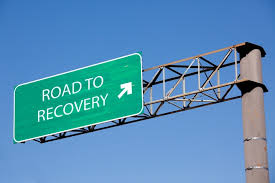Teens, Food, Eating … Addiction?
Monday, June 13th, 2022Addiction and Recovery
By Bob Gaydos
 The list of substances or behaviors to which adolescents can become unhealthily attached, even addicted, can seem endless to a parent inclined to be caring and protective: alcohol, smoking, drugs, gambling, video games, social media, internet, cell phones, sex, shopping, eating …
The list of substances or behaviors to which adolescents can become unhealthily attached, even addicted, can seem endless to a parent inclined to be caring and protective: alcohol, smoking, drugs, gambling, video games, social media, internet, cell phones, sex, shopping, eating …
Wait, eating you say? Yes, eating. Or food. It depends. There’s a debate over whether the problems are the same thing. Some say that someone who craves the same food, say sweets or salty chips, and consumes it in unhealthy amounts might be considered a food addict, a term not universally accepted, but one that is useful in defining a behavior. The food in question reacts on the brain in the same way that alcohol or another drug would. It rewards the person, who feels good.
Some say that someone for whom eating — anything and plenty of it — is a fulltime job with significant negative consequences might be considered to have an eating addiction, rather than a food addiction. Eating may provide the same kind of escape and temporary excitement that gambling, for example, would in someone else. An irresistible reward.
And, of course, these harmful behaviors often co-exist. Addictions may have biological, psychological, or social causes, or, likely, a combination of them.The focus here is not on debating the food/eating addiction question, but rather on recognizing that food addictions and eating disorders — a different category of self-destructive behavior, including anorexia, bulimia and binge eating — can often be ignored in teens when there is so much talk in media — social and otherwise — about drinking and driving, opioid abuse, the pros and cons of marijuana and the rest of that list.
Teens eat, adults say. Sometimes they eat a lot. Maybe a lot of junk food. They’re growing. So what’s the big deal?
Maybe nothing; maybe something. A primary goal of this column is to provide useful information to help readers identify and get help for addictive behavior and some studies say up to 10 percent of Americans may have a food-related addiction or disorder. One in 10 female teens may have an eating disorder. A smaller percentage of teen boys, perhaps athletes such as wrestlers or runners, also have issues that revolve around body weight and image. What follows are some symptoms and questions to help you decide if you or someone you know, perhaps a teenager, has a health issue involving food.
The following are possible symptoms of a food addiction:
— Gorging
— Eating to the point of feeling ill
— Going out of your way to obtain certain foods
— Continuing to eat certain foods even if no longer hungry
— Eating in secret
— Avoiding social interactions, relationships to spend time eating certain foods.
— Difficulty functioning in a job or school due to decreased efficiency
— Spending a significant amount of money on buying certain foods to binge
— Obesity
— Fatigue
— Difficulty concentrating
— Sleep disorders, such as insomnia or oversleeping
— Headaches
— Irritability
— Digestive disorders
— Thoughts of suicide
Food Addicts in Recovery Anonymous, a 12-step group that seeks to help people with food addictions or disorders, offers its own quiz to help people determine if they have a problem with food. As always, answer as honestly as possible:
Have you ever wanted to stop eating and found you just couldn’t?
Do you think about food or your weight constantly?
Do you find yourself attempting one diet or food plan after another, with no lasting success?
Do you binge and then “get rid of the binge” through vomiting, exercise, laxatives, or other forms of purging?
Do you eat differently in private than you do in front of other people?
Has a doctor or family member ever approached you with concern about your eating habits or weight?
Do you eat large quantities of food at one time (binge)?
Is your weight problem due to your “nibbling” all day long?
Do you eat to escape from your feelings?
Do you eat when you’re not hungry?
Have you ever discarded food, only to retrieve and eat it later?
Do you eat in secret?
Do you fast or severely restrict your food intake?
Have you ever stolen other people’s food?
Have you ever hidden food to make sure you have “enough”?
Do you feel driven to exercise excessively to control your weight?
Do you obsessively calculate the calories you’ve burned against the calories you’ve eaten?
Do you frequently feel guilty or ashamed about what you’ve eaten?
Are you waiting for your life to begin “when you lose the weight”?
Do you feel hopeless about your relationship with food?
A “yes” answer to any question could indicate a problem with food, the group says.
Obviously, these are complex issues with serious — even life-threatening — potential consequences that need to be addressed as early as possible by trained professionals. There are a variety of programs and organizations to turn to If you suspect a food-related problem. Consult your doctor to begin with and check any of the accompanying links for more information.
For help
— www.foodaddictsanonymous.org
— www.recoveryfromfoodaddiction.org
— www.foodaddicts.org
— www.oa.org
— www.eatingdisordersanonymous.org
— www.nationaleatingdisorders.org
— www.nimh.nih.gov
— www.mentalhealthamerica.net
rjgaydos@gmail.com
Bob Gaydos is writer-in-residence at zestoforange.com.









